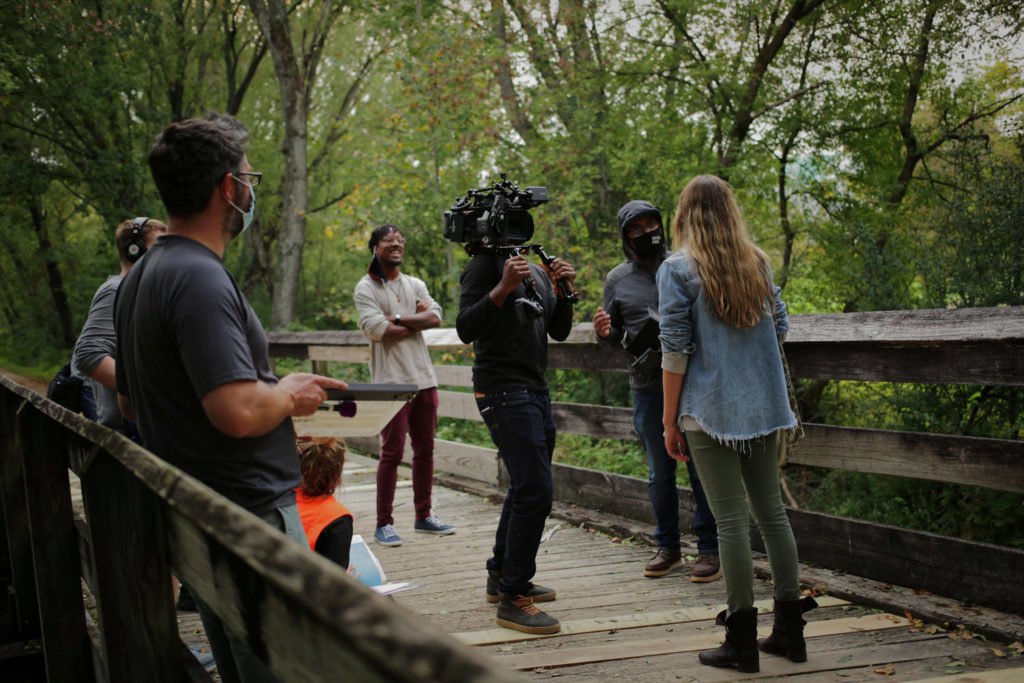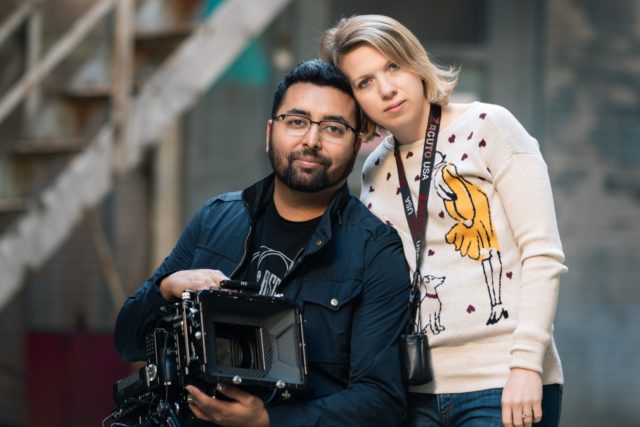Bravebird’s Trace the Line examines the role of art in a global health crisis, political strife and in social movements.
“A lot of us on the set knew what we were doing wasn’t just a movie. It was a movement,” director Alex Miranda Cruz said.
The creators plan to continue the conversation this week Thursday, July 15, at noon alongside special guests Zach Brandon, president of the Madison Chamber of Commerce, and Mark Fraire, director of Dane Arts. Cinematographer Greg Hatton will moderate a Q&A also featuring Miranda on arts activism, tools for community leaders, and how those themes intersect in the film Trace the Line.
“From the top, bottom-up, everyone was really concerned about what was happening in our nation and what role does art play in this,” he said.
Miranda describes Trace the Line as a vintage film created under unique circumstances. The project depicts the lives of two artists following the tumultuous events of last year including protests following the shooting of Ahmaud Arbery and police killings of Breonna Taylor and George Floyd.
“Our lead actor was out on the frontlines. He went through a lot,” Miranda said.
Miranda said many of their friends participated in the protests and activism last summer. The film also captures events following the police shooting of Jacob Blake in Kenosha.
“We don’t want to be gratuitous with the protesting. We want to do something that brings honor to the protest,” he said.

Alex Miranda and his wife, producer Noel Miranda, recruited the help of their friends to create a feature-length film after work for their community dried up. The creative duo cast Wisconsin natives — spoken word poet Matthew Charles Bogart and visual artist Brooke Leland — as the leads for the film. The two portrayed fictionalized versions of themselves.
“Neither of them had acted before and they were worried about performing at a high level,” Alex Miranda said.
A lot of the people involved in the film tried something they had never done before. No one on their team except for the cinematographer had ever created a feature-length film before. Behind the scenes, Bravebird’s production consisted of a mostly local production crew of about 55 percent people of color and 50 percent women.
“We were trying to figure out how to survive and help our friends survive,” Alex said. “…We brought a team of 45 people from around the world to work on this film and 45 people isn’t even a lot,” Alex Miranda said.
The group was made up of a bunch of newbies trying to make a movie during one of the worst times to make a film. Hollywood shut down after declining ticket sales, theater closures, release delays and production freezes.
“I wasn’t planning to make Trace the Line. Then, COVID happened. We were supposed to be in Europe when Trace the Line happened but that didn’t happen. We lost 90 percent of our work,” Alex Miranda said.
In addition to local government grants, Trace the Line received fiscal sponsorship through Film Independent, a source of nonprofit funding for independent filmmakers and media artists. This allowed the Miranda’s to pay both their cast and crew.
“No one was able to make top dollar but it helped a lot of people. It helped us get through COVID,” Alex Miranda said.
Join Trace the Line director Alejandro Miranda Cruz for a lunch hour event centered on transforming narratives and sparking dignity-centered dialogues on Thursday, July 15, noon. For more information, click here.




























